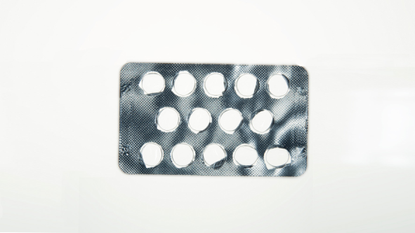

I've had migraines since I was a teenager. They're all a little different: dehydration, eyestrain, caffeine deprivation, the ushering in of my menstrual cycle—each has its own flavor of pain, annoying but predictable.
Until earlier this year. I was in my apartment and felt the monthly migraine coming on, when my vision blurred. And it stayed that way for hours. I couldn't work. I couldn't read. I finally just lay down in bed waiting for it to pass, wondering if I was having a stroke.
It never happened again, but a few months later, I was visiting a new gynecologist who asked me about the migraines noted on my medical questionnaire. "Anything abnormal about them in the last year?"
"No," I pause. "Well, actually, there was one that was kind of weird…"
She looked at me with concern. "I'll refill your prescription for this year but I really want you to come off of these next year." She explained that the pills increase the risk of stroke and that, as an occasional smoker (occasional! Really! STOP JUDGING ME!), I really need to stop taking them once I turn 35 — a deadline of just over a year.
The next day, I refilled my prescription, but when it came time for me to start taking the pills again, I decided … not to. It had been 18 years since I first started taking them and I really had no idea what it would be like to just simply not take them. I already knew the side effects I had experienced from the pills themselves; what would the side effects be of not taking them? Excruciating cramps? Weeks of bleeding? Irregular cycles? PMS psychosis?
I did a little bit of research before I made this decision—Googling "what happens when you stop taking birth control?" of course—and got a bit of an idea of what to expect. Increased acne. Spotting. Irregular cycles.
Stay In The Know
Marie Claire email subscribers get intel on fashion and beauty trends, hot-off-the-press celebrity news, and more. Sign up here.

Of course, everybody's body is different and one person's experience with a hormone cocktail might be a Molotov compared to someone else's cosmo. I knew this, and I also knew there was no sure-proof way to know what was going to happen, no matter how many personal experiences I read online. I knew I didn't want unpredictable periods lasting a large chunk of each month, but ...well, I also didn't want a stroke. I had to find out for myself.
The first week was hell. My mood spiraled out of control. I was ranting and raving, and overwhelmed with every emotion I felt, like a particularly vicious bout of PMS. I became painfully bloated for weeks. My breasts were excruciatingly tender. I was just about ready to take my chances with a stroke.
But then it passed. My first cycle came right on time, but without PMS, much lighter cramping, only the faintest migraine, and significantly shorter in duration. OK, I thought, my body is still acclimating. Let's see how this progresses.
There was no spotting. I definitely saw an increase in acne—not ideal, but I didn't have blemish-free skin to begin with. The next month, my period lasted barely three days—half the duration they were while on the pill. I had to think about whether or not I had cramps—they were there, but I hardly even noticed. The migraines vanished.
But all that was nothing compared to the miraculous mood stabilization I have experienced. Gone are the violent mood swings, the irate fury, the sinking depression, the consuming insecurity, and all the other personalized hells I experienced for up to two weeks out of every month.
Previously if I forgot to take a pill one day, I knew I would pay for it tenfold with unholy hormone rage. Years ago, I asked to be put on a lighter estrogen dose due to how severe my hormone-altered mood swings were. I knew they still impacted me, but I had no idea to what extent. This wasn't just a welcome change: I felt like a whole new person.
Having to rely solely on condoms as my method of contraception is a sacrifice I happily made in exchange for feeling so happy, so healthy, so normal.
As a person who had suffered from such extreme mood swings for so long—medical professionals and well-meaning armchair psychologists had been trying to convince me to go on antidepressants for years—this wasn't just a pleasant surprise. It was profound.
I couldn't have known. Not everyone suffers the same psychological fallout from the unnatural estrogen doses as I did, and not everyone will experience the same relief from the release of their pituitary prison. (Needless to say, ask your doctor about your options.)
Still, I can't help but wonder how different the last 18 years of my life might have been without the pills, and the emotional meltdowns that impacted both my personal and professional life...often severely and irreversibly. To think, all that time I would excuse my behavior with, "I'm sorry, I'm a crazy person when I'm PMSing," forewarning others when I knew it was coming on, planning vacations and social events around it to minimize the misery for myself and others, having former boyfriends and even employees tell me that they used track my PMS cycle so they knew exactly when to expect me to go full Mr. Hyde—all of it could have been avoided. Life, as I knew it for the entirety of my adulthood, could have been drastically different.
Still, I'm glad I made the change when I did, as I just look at it as a beautiful opportunity for the next 18 years to be a whole lot better. Life begins at 33, right?
-
 Here’s How to Get Out of a Speeding Ticket, According to Zendaya and Tom Holland
Here’s How to Get Out of a Speeding Ticket, According to Zendaya and Tom HollandUnfortunately, the rest of us might not be able to use this tactic.
By Rachel Burchfield Published
-
 Fans Are Convinced Taylor Swift Gave Travis Kelce’s Dad a Shoutout on ’The Tortured Poets Department'
Fans Are Convinced Taylor Swift Gave Travis Kelce’s Dad a Shoutout on ’The Tortured Poets Department'“Oh I just know Ed Kelce is giggling and kicking his feet.”
By Danielle Campoamor Published
-
 Taylor Swift Commissioned Stevie Nicks to Join 'The Tortured Poets Department'
Taylor Swift Commissioned Stevie Nicks to Join 'The Tortured Poets Department'This isn't the first time the two songwriters have collaborated.
By Quinci LeGardye Published
-
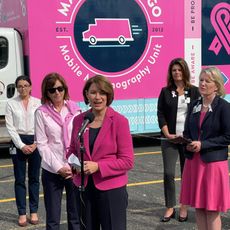 Senator Klobuchar: "Early Detection Saves Lives. It Saved Mine"
Senator Klobuchar: "Early Detection Saves Lives. It Saved Mine"Senator and breast cancer survivor Amy Klobuchar is encouraging women not to put off preventative care any longer.
By Senator Amy Klobuchar Published
-
 How Being a Plus-Size Nude Model Made Me Finally Love My Body
How Being a Plus-Size Nude Model Made Me Finally Love My BodyI'm plus size, but after I decided to pose nude for photos, I suddenly felt more body positive.
By Kelly Burch Published
-
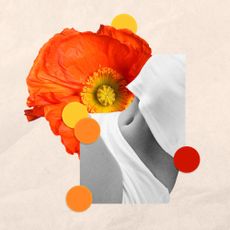 I'm an Egg Donor. Why Was It So Difficult for Me to Tell People That?
I'm an Egg Donor. Why Was It So Difficult for Me to Tell People That?Much like abortion, surrogacy, and IVF, becoming an egg donor was a reproductive choice that felt unfit for society’s standards of womanhood.
By Lauryn Chamberlain Published
-
 The 20 Best Probiotics to Keep Your Gut in Check
The 20 Best Probiotics to Keep Your Gut in CheckGut health = wealth.
By Julia Marzovilla Published
-
 Simone Biles Is Out of the Team Final at the Tokyo Olympics
Simone Biles Is Out of the Team Final at the Tokyo OlympicsShe withdrew from the event due to a medical issue, according to USA Gymnastics.
By Rachel Epstein Published
-
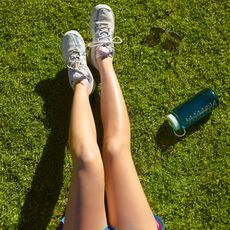 The Truth About Thigh Gaps
The Truth About Thigh GapsWe're going to need you to stop right there.
By Kenny Thapoung Published
-
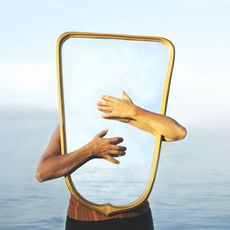 3 Women On What It’s Like Living With An “Invisible” Condition
3 Women On What It’s Like Living With An “Invisible” ConditionDespite having no outward signs, they can be brutal on the body and the mind. Here’s how each woman deals with having illnesses others often don’t understand.
By Emily Shiffer Published
-
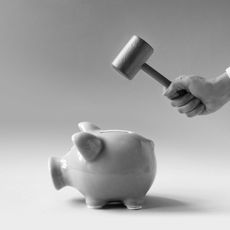 The High Price of Living With Chronic Pain
The High Price of Living With Chronic PainThree women open up about how their conditions impact their bodies—and their wallets.
By Alice Oglethorpe Published